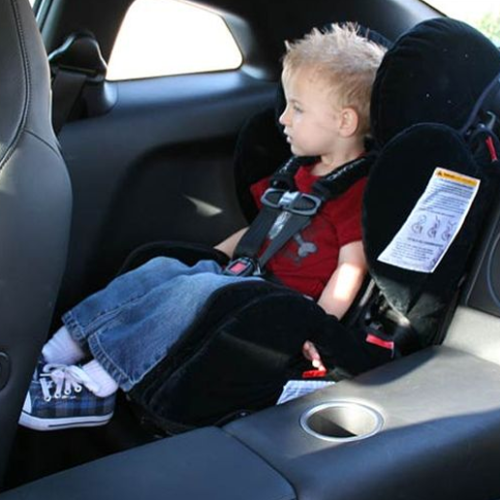Guiding children through a parent’s breast cancer diagnosis

When facing the daunting task of explaining a breast cancer diagnosis to your child, balancing honesty, hope, and support is crucial. Dr. Wafa Saoud, Clinical Psychologist, Child, Adolescent, and Family Specialist at Sage Clinics explores the strategies to help navigate this challenging journey together.
“How do I tell my child I have breast cancer?”
If you are reading this, then you likely are or know someone who is needing to support a child through a breast cancer diagnosis. I imagine you have many thoughts and feelings on how to proceed and that this is a very difficult time for you. I hope this article provides you a little guidance, or, at least, helps you to feel a little less alone knowing that it was written for you.
Among the most important pieces of advice, I can give you, is to balance honesty and uncertainty with hope and security.
Here are a few strategies and approaches that I would recommend:
Be honest. Your instinct may be to protect your child from difficult thoughts and feelings, so you may be tempted to hide the diagnosis, or you may try to be vague about the illness, saying, “I am fine”. Unfortunately, we cannot fully shelter children from difficult experiences in life. Rather than trying to hide your experiences with breast cancer from your child, try to create perceptions of hope and belonging for them throughout your journey; this is how children can be better kept safe from harm.
It is important to be honest. While you attend to your medical needs, you will likely, and understandably, be less available for your child. Children often notice when their parents become less available to them. To make sense of this loss, they sometimes blame their parents or themselves. This blame can lead to feelings of rejection.
Be honest but use simple language that is appropriate for your child’s age. You can say something like, “I found out I have a sickness called cancer. Something that does not belong in my body is growing inside.” If you child asks, “does it hurt?”. You can say something like, “it hurts sometimes. The treatments the doctors give me can also make me feel tired and sick. However, they think the treatments will help to get rid of the cancer so that I can feel better later. Sleeping helps me feel a little better too”.
Answer questions but instil hope. Sometimes, parents want to avoid questions that they fear will lead to disappointment. However, when children have unanswered questions, they sometimes make up their own answers. Children are prone to catastrophic thinking. Even if they do not have the language or insight to talk about or understand death, these fears can show up in their emotions and behaviours. For example, a child may cling to you more in fear of separation. You do not know everything that will happen in the future, most of us rarely do. It is okay for your child to not know everything that will happen too.
If you child asks, “will you die?”. You can say something like, “many people with this type of cancer do not die. They get better with help from doctors. That is what I am hoping for too”.
Create space for emotions. Unexpressed feelings can lead to feeling disconnected from others. It is okay for your child (and you!) to share feelings. If your child cries, you can hug them and say something like, “it is okay to feel sad, I feel sad about this too.” After learning about your diagnosis or experiencing separation from you while you attend to your medical needs, your child may cling to you more out of fear of potentially losing you. Know that this is a normal response. Give your child an item to symbolize your presence while you are unavailable, such as a stuffed animal or a special bracelet.
Balance uncertainty with certainty. You may feel tired or ill unexpectedly throughout the day, or you may, understandably, need to alter plans to attend doctor’s appointments. Uncertainty around your recovery as well as around daily schedules can cause a child to feel emotionally overwhelmed. Try to maintain daily routines for your child as much as possible, such as school attendance, bedtime, and morning routines.
Reassure. Your child may be concerned about how a breast cancer diagnosis will affect them. Let them know that breast cancer is not something they can catch from you, like a cold. If they wonder about who will take care of them while you are in the hospital, reassure them of who will step in to care for them, such as another caregiver, grandparent, relative, or friend.
Encourage connections. Invite your child to be helpful where appropriate. You may ask them to bring you a blanket or tea when you feel cold or help their younger sibling with their homework when you are unable to. This can help them to feel more connected and involved in your journey.
Facilitate social connections and supports for your child. If you can arrange for additional support in transportation, then it may be helpful to encourage your child to engage with extracurricular activities. You may also ask a trusted adult to arrange and chaperone play dates for you child. Additionally, you may want to let your child’s school know about your diagnosis, so that your child may get extra counselling support at school.
Seek Professional Help. You may notice that your child is struggling to cope with your diagnosis despite the passage of time and family support. They may show extreme and persistent anxiety and avoidance, emotional outbursts, and persistent sadness or irritability. They may also show extreme withdrawal from their family life, to, sometimes unconsciously, escape what is happening at home. If so, you may want to consider connecting your child with a mental health professional. Children can feel emotionally overwhelmed when they have a parent with breast cancer. Mental health support may help them to work through overwhelming thoughts and feelings.
There is no wrong or right way to support your child through a breast cancer diagnosis. You know your child better than anyone else does. Trust in what you know about how your child best reacts in different situations. Use that knowledge coupled with strategies above. And remember, when children must cope with difficult experiences in life, having love and support from someone they trust may sometimes be enough protection to get them through the journey.
Image Credit: Sage Clinics












Comments